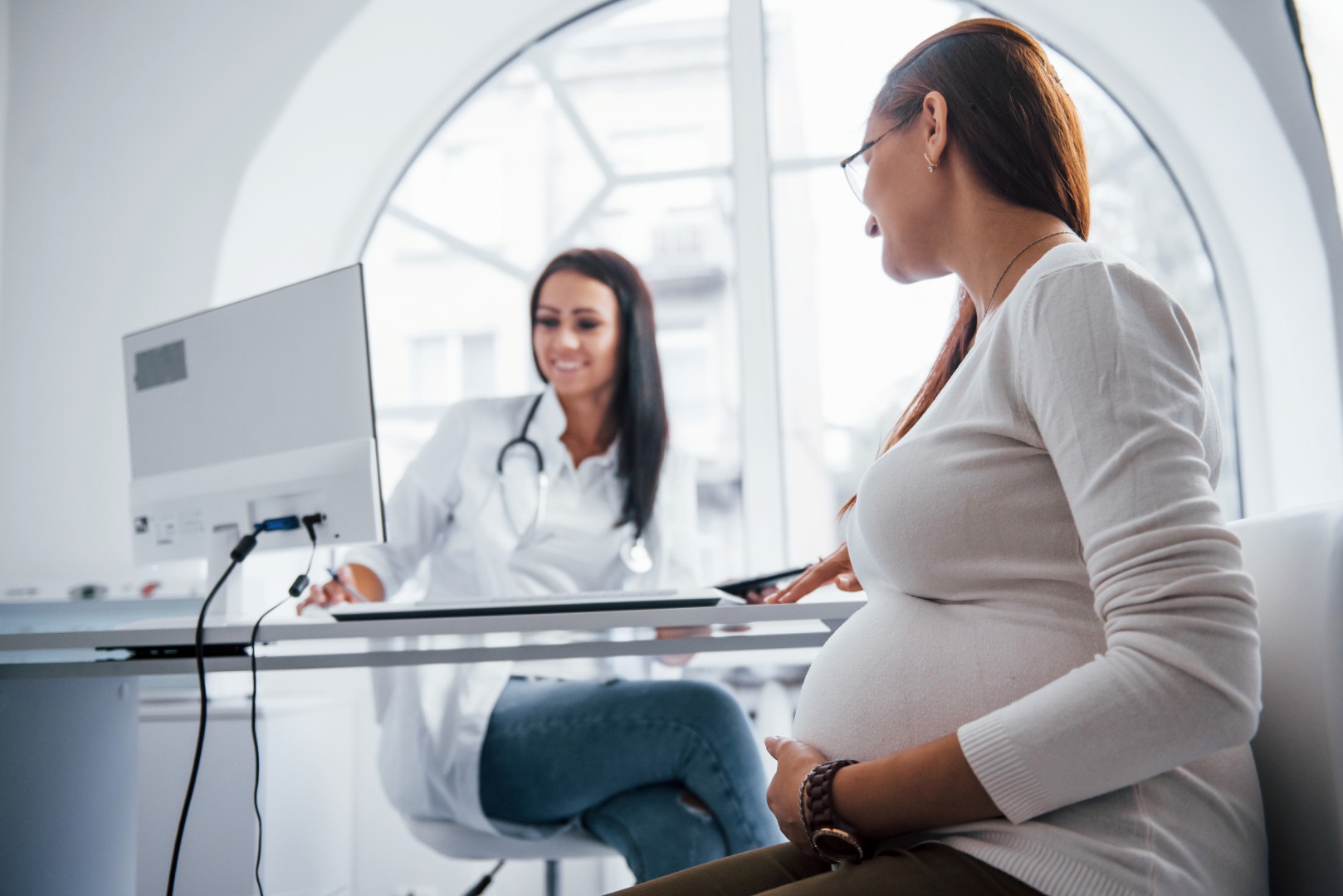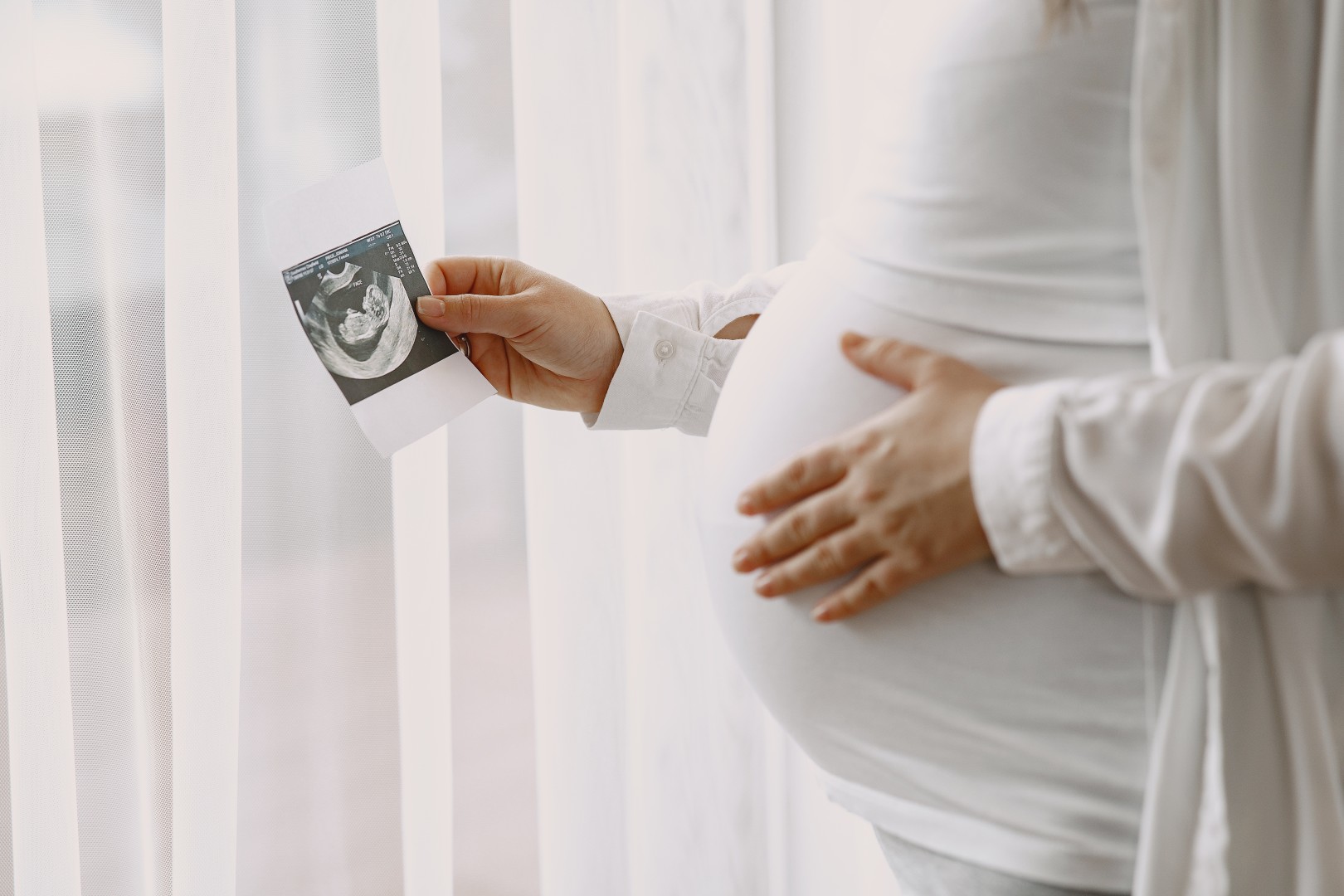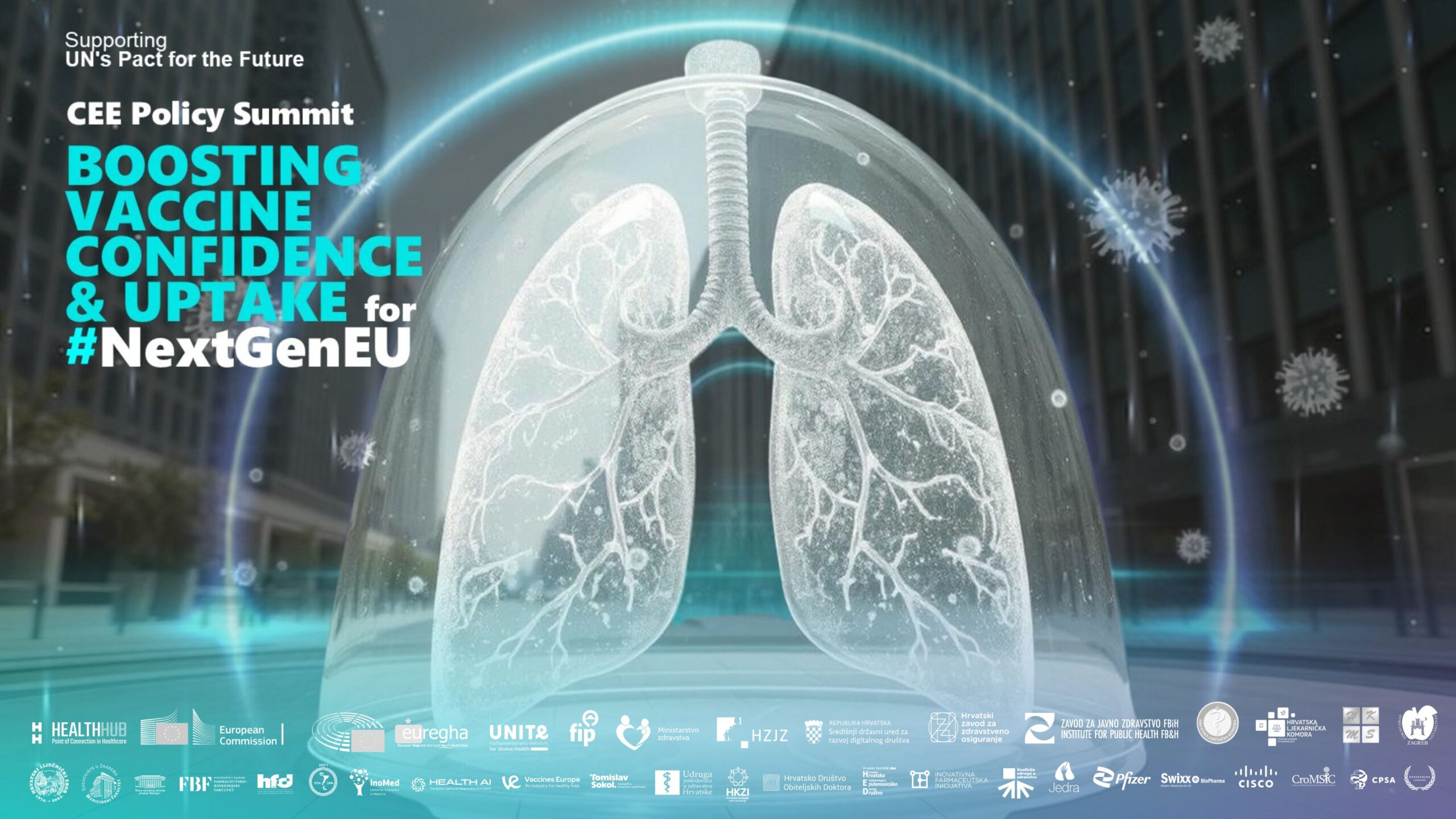Health Hub’s CEE Policy Summit – Vaccination of pregnant women: an overview of European policies and strategies to promote it (Front Public Health, ESCMID, EBCOG, European Vaccination Portal)
he recently published article “Vaccination of pregnant women: an overview of European policies and strategies to promote it” provides a comprehensive analysis of the current landscape of maternal immunization across Europe. Based on the findings, the following policy recommendations are proposed to enhance vaccination rates among pregnant women:
- Standardize Maternal Immunization Policies Across Europe: Harmonize vaccination guidelines for pregnant women to ensure consistent recommendations and reduce disparities between countries.
- Integrate Vaccination into Routine Prenatal Care: Incorporate discussions and administration of recommended vaccines as a standard component of prenatal visits to increase accessibility and acceptance.
- Educate Healthcare Professionals: Provide ongoing training for obstetricians, midwives, and general practitioners on the safety, efficacy, and benefits of maternal immunization to enable them to confidently recommend vaccines.
- Launch Public Awareness Campaigns: Develop targeted communication strategies to inform expectant mothers about the importance of vaccinations, addressing common misconceptions and cultural barriers.
- Monitor and Evaluate Vaccination Programs: Establish robust surveillance systems to track vaccination coverage and outcomes among pregnant women, facilitating data-driven policy adjustments.
- Address Vaccine Hesitancy: Implement interventions tailored to specific communities to build trust and counteract misinformation regarding maternal immunization.
By adopting these recommendations, European health authorities can work towards improving maternal and neonatal health outcomes through increased vaccination uptake during pregnancy.
Source: Properzi S, Carestia R, Birettoni V, Calesso V, Marinelli B, Scapicchi E, Brillo E, de Waure C. Vaccination of pregnant women: an overview of European policies and strategies to promote it. Front Public Health. 2024 Dec 9;12:1455318. doi: 10.3389/fpubh.2024.1455318. PMID: 39717028; PMCID: PMC11663893.
“By adopting these recommendations, European health authorities can work towards improving maternal and neonatal health outcomes through increased vaccination uptake during pregnancy.”

Photo by Freepik
The European Society of Clinical Microbiology and Infectious Diseases (ESCMID)
The European Society of Clinical Microbiology and Infectious Diseases (ESCMID) is hosting soon an online event titled “Vaccination during Pregnancy: For the Mother, and for the Child” on May 6, 2025. This educational session aims to provide attendees with:
- An overview of the immune system modifications associated with pregnancy.
- Insights into the disease burden and the impact of maternal vaccination on both mothers and children, focusing on influenza, pertussis, and respiratory syncytial virus (RSV) infections.
The event is part of ESCMID’s broader educational offerings, which include various courses and training programs related to clinical microbiology and infectious diseases.
For healthcare professionals and policymakers, this event presents an opportunity to deepen understanding of maternal immunization strategies, which is crucial for developing effective policies and practices to protect maternal and child health.
Source: https://www.escmid.org/event-detail/vaccination-during-pregnancy-for-the-mother-and-for-the-child/

Photo by Freepik
The European Board and College of Obstetrics and Gynaecology (EBCOG) Recommendations
The European Board and College of Obstetrics and Gynaecology (EBCOG) has issued a position statement emphasizing the importance of maternal immunization to enhance maternal and child health by reducing morbidity and mortality associated with vaccine-preventable diseases during the perinatal period and early life.
Key Recommendations from EBCOG:
- Preconception Vaccination Assessment: Healthcare providers should evaluate the immunization status of women during preconception counseling. Vaccines such as hepatitis A and B, human papillomavirus (HPV), measles-mumps-rubella (MMR), meningococcal, pneumococcal, tetanus-diphtheria-pertussis (Tdap), varicella, and zoster can be administered preconceptionally to prevent serious diseases during pregnancy.
- Vaccination During Pregnancy: Influenza vaccination can be administered at any time during pregnancy, before and during the influenza season. For women who are or will still be pregnant during influenza season, any licensed and age-appropriate influenza vaccine is recommended, except live attenuated influenza vaccine. Achieving high VCRs for influenza virus in pregnant women remains a serious public health challenge because recommendations, vaccination schedule and cost coverage differ substantially
across European countries. - Safety of Inactivated Vaccines: There is no evidence of adverse fetal effects from vaccinating pregnant women with inactivated virus or bacterial vaccines or toxoids. Therefore, pregnancy should not preclude women from receiving these vaccines when medically indicated.
EBCOG supports the recommendations made by international public health institutions such as the World Health Organization (WHO) and the Centers for Disease Control and Prevention (CDC) regarding the use of vaccines during pregnancy. The organization is committed to collaborating with professional bodies and healthcare policy advisors to develop strategies that address ethical, cultural, and policy barriers, thereby improving the uptake of recommended vaccines and promoting the advancement of maternal immunization.
Source: https://www.sfog.se/media/336571/euro_10800.pdf

Photo by Freepik
European Vaccination Information Portal on maternal immunization
Vaccinating a pregnant person protects them from potentially severe disease and complications during their pregnancy and can also extend that protection to a newborn after birth. This is called maternal vaccination, and helps protect the newborn until they can receive vaccinations themselves.
People who are pregnant should consult their national vaccination schedule and speak to a doctor about vaccines to ensure they benefit from optimal protection.
Maternal vaccination helps protect newborns from infections, some of which are especially dangerous for newborns, such as whooping cough (pertussis) and respiratory syncytial virus (RSV).
Here are recommendations based on the information from the European Vaccination Information Portal on maternal immunization:
Maternal vaccination is a crucial strategy for protecting both pregnant individuals and their newborns from severe infectious diseases. Based on the information provided by the European Vaccination Information Portal, the following policy recommendations aim to enhance vaccination uptake and effectiveness:
Ensure Routine Maternal Vaccination for Key Infections
- Influenza: People who are pregnant are at increased risk of severe disease and hospitalisation due to respiratory illness during flu seasons. Vaccination against the flu protects not only them, but can also help protect the newborn baby from flu-related complications for up to six months after birth.
- Whooping Cough (Pertussis): Whooping cough, also known as pertussis, is a highly infectious bacterial disease of the lungs and airways. It can be serious in people of any age but in unvaccinated infants or infants whose biological mother was unvaccinated recently or during pregnancy it can be particularly severe. Complications include pneumonia, encephalopathy (a disease of the brain), seizures and even death. Almost all deaths from whooping cough recorded in Europe are in infants younger than three months. When a person gets vaccinated against whooping cough during pregnancy, their body creates protective antibodies against the disease. These antibodies then also pass on to the unborn baby. This helps protect them from whooping cough immediately after birth until the baby is old enough to be vaccinated.
- Respiratory Syncytial Virus (RSV): Respiratory syncytial virus (RSV) is a common respiratory virus that causes mild, cold-like symptoms. However, in infants under six months of age, RSV can cause severe illness and death. Almost all children will be infected with RSV by the time they are two years old. When a person gets vaccinated against RSV during pregnancy, the antibodies generated in response to the vaccine cross the placenta to the unborn baby, protecting the baby for up to six months following birth.
- COVID-19: People who are pregnant are more likely to develop severe disease and complications as a result of COVID-19. This means their unborn baby could also be at risk. Vaccination against COVID-19 helps to protect the parent against severe disease. People who plan to become pregnant should ensure they are up to date with their COVID-19 vaccinations, in line with national recommendations. People can still be vaccinated against COVID-19 during pregnancy.
Source: https://vaccination-info.europa.eu/en/new-and-expecting-parents/vaccination-during-pregnancy






